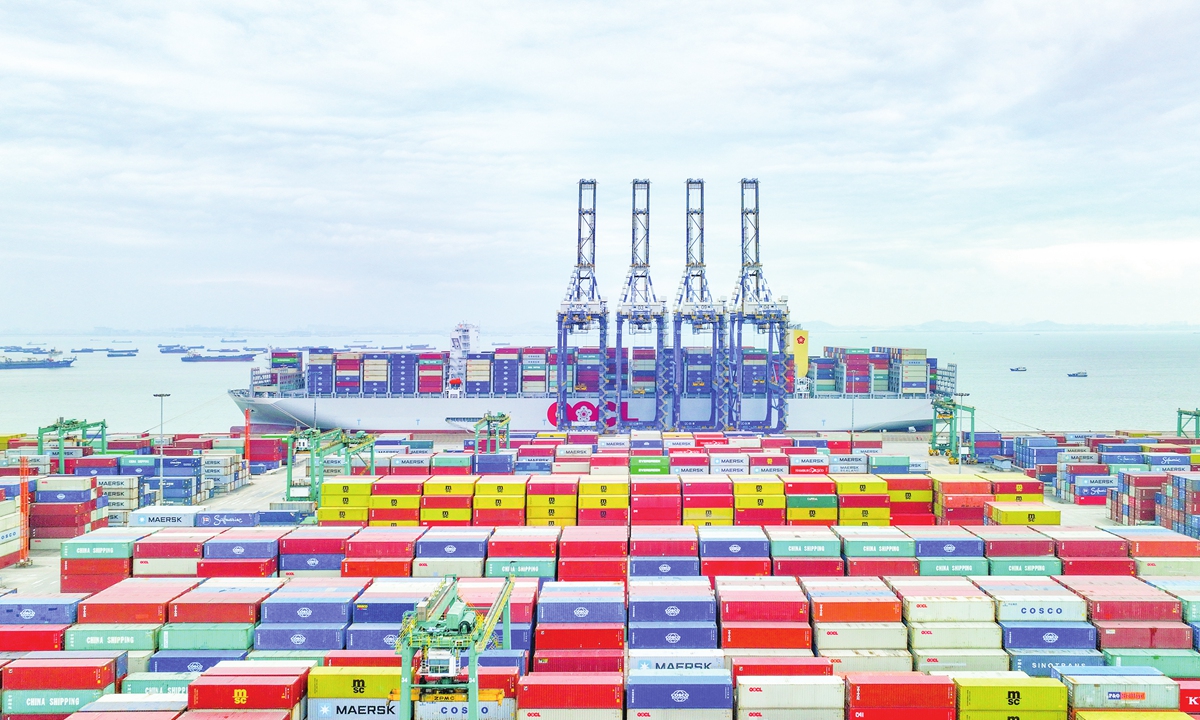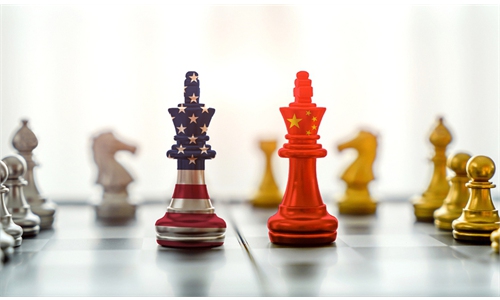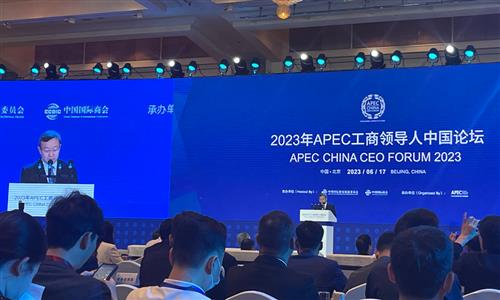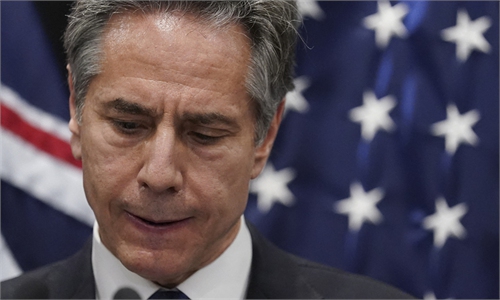Blinken's trip prompts calls for China, US to stabilize bilateral trade ties
Business communities hope for improved communication to steady economic cooperation

A container terminal at the Port of Guangzhou in Nansha district File Photo: Courtesy of the Port of Guangzhou
As China and the US are engaging in high-level dialogue marked by US Secretary of State Antony Blinken's trip to China that started on Sunday, business communities on both sides and experts are expressing hope for improved communication to stabilize bilateral economic and trade cooperation.While diplomatic ties have been strained amid the US' continuously hostile approach toward China, many businesses on both sides are actively promoting economic and trade exchanges, including growing in-person trips and meetings, in a bid to stabilize trade, analysts noted.
After weeks of US media hype, Blinken arrived in Beijing on Sunday and began talks with Chinese officials, including State Councilor and Foreign Minister Qin Gang. The trip marks the highest-level US official visit to China since October 2018.
While the trip is expected to mostly cover broader issues in bilateral relations, economic and trade ties are also in focus. Before he left Washington on Saturday, Blinken said at a press conference that one of the three objectives of his trip is "to explore the potential for cooperation on transnational challenges, global economic stability, illicit synthetic drugs, climate and global health, where our countries' interests intersect and the rest of the world expects us to cooperate," according to an official transcript.
US media reports suggested that Blinken's trip is also expected to pave the way for more bilateral meetings in coming months, including possible trips by Treasury Secretary Janet Yellen and Commerce Secretary Gina Raimondo.
Many analysts remain cautious over any potential breakthroughs in bilateral relations during the trip, but they expressed hope that the visit could inject positivity into bilateral cooperation in areas of mutual benefit.
Whether the trip will lead to more exchanges between China and US, especially in the economic and trade sphere, "depends on the outcomes of the talks" between Blinken and Chinese officials, Gao Lingyun, an expert at the Chinese Academy of Social Sciences in Beijing, told the Global Times on Sunday.
Gao noted that while US officials continue their containment strategy against China despite their shift in rhetoric from "decoupling" to "de-risking," many US businesses have made it clear that they want to pursue cooperation with China, as demonstrated by the US executives who have visited China over the past several months.
"They are putting aside politics and geopolitics, which should be the normal state of win-win cooperation," he said.
One day before Blinken's arrival, on Saturday, representatives from China and the US convened at the Asia-Pacific Economic Cooperation (APEC) China CEO Forum 2023 held in Beijing, calling for collaborative efforts to promote prosperity in the Asia-Pacific region through the multilateral mechanism in light of the increasing challenges faced.
Wang Linjie, a spokesperson for the China Council for the Promotion of International Trade, which co-hosted the forum, said that the event was intended to "promote economic and trade cooperation and exchanges in the Asia-Pacific region, and prepare for attending the APEC CEO Summit in the US in November."
Chinese businesses have also been arranging trips and exchanges in the US. The China Chamber of International Commerce (CCIC) is arranging a trip to various US states, including Washington DC, New Jersey and North Carolina in late July. The CCIC told the Global Times on Sunday that about 20 people from mostly small businesses have signed up for the trip, which will include participation in bilateral trade activities and exchanges with US officials and businesses to expand cooperation.
There is also growing domestic opposition to the US decoupling push. Last week, Yellen told a Congressional hearing that "it would be disastrous for us to attempt to decouple from China," while stressing that the US wants only to "de-risk" its relationship with China.
The tone underscores the mounting resistance to the US' radical decoupling strategy, which has failed to achieve what the US intended - contain China's rise.
There is a growing trend in the US for politics to increasingly contradict economic policies, He Weiwen, a senior fellow at the Center for China and Globalization, told the Global Times.
"Ideologically, the US is suppressing and isolating China and has taken the path of decoupling. In terms of the economy, the US has emphasized that it will not decouple," He said. "But in any case, economic cooperation can still result in or promote certain political compromises."
Amid the unilateral and protectionist policies of the US, China-US bilateral trade declined by 5.5 percent year-on-year to 390.46 billion yuan ($54.84 billion) in the first five months of the year, according to statistics from the General Administration of Customs.



